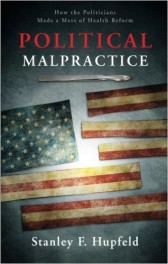Healthcare Leadership in a Post Reform World
Historically, health care delivery has tended to be transactional and unidirectional-in other words one doctor-one hospital stay-one insurance bill. Now in a post reform world all bets are off. It requires a different kind of thinking when we begin to take a risk(read premium ...
Historically, health care delivery has tended to be transactional and unidirectional-in other words one doctor-one hospital stay-one insurance bill. Now in a post reform world all bets are off. It requires a different kind of thinking when we begin to take a risk(read premium dollar) for the total care of a patient population. A different approach when we have to accept a single payment for an episode of care and then split that payment among several providers. In that environment we must be much shrewder and have a different approach with the other stakeholders. We certainly need to understand why health care seems to defy our best thinking about how to change it and what policy alternatives give us the best hope of survival. In this keynote, Stan Hupfeld invites leaders to hear his somewhat provocative thoughts that will stimulate discussion and encourage leaders to think outside the box as never before!
His keynote will center around “everything is different:”
– Payment – population health versus fee for service
– Narrow margins – waiting lines
– The government (not the market) determines medical technology
– Dying becomes acceptable
– Extreme budget control
– Massive consolidations – 10 to 15 national systems control health care
Women and medical professionals as leaders
– 75% of health care workforces are female
– Business skills less important than clinical skills
Thin margins – lead to labor issues
What doesn’t change
– Ability to empathize with patients and care givers
– Sense of humor in tough times
– Focus on care delivery process
– A love of the work
